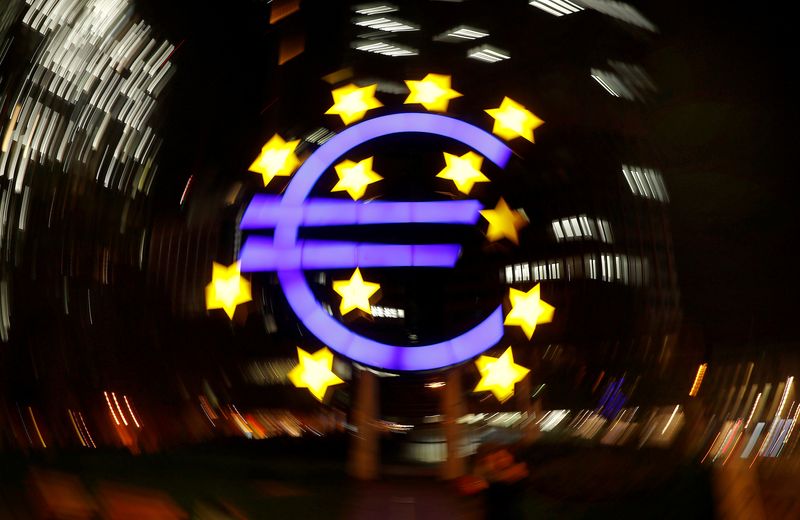By Yoruk Bahceli and Stefano Rebaudo
(Reuters) -Germany's two-year government bond yield jumped to its highest since 2011 on Thursday, after the European Central Bank delivered an unprecedented 75 basis points interest rate hike and took steps to prevent a further squeeze in bonds.
The ECB said on Thursday it would start paying interest on government deposits in a bid to keep that cash from flooding an already replete market facing a squeeze in bonds.
That followed a decision by the central bank to hike its deposit rate to 0.75% from zero. The ECB also signalled further hikes, prioritising the fight against inflation even as the bloc's economy is heading for a likely winter recession.
Germany's two-year bond yield soared more than 20 bps to 1.324%, its highest since 2011, while 10-year bond yields were up 14 bps to 1.71%.
"Today's market reaction has more to do with ECB's firm commitment to hiking rates in the next few meetings. They will continue to hike into next year," said UBS economist Dean Turner. "Another thing we have to bear in mind is that today’s decision was unanimous."
Other two and 10-year bond yields also rose, with Italian 10-year yields up 8 bps at 3.95%.
But the rise in bond yields accelerated, and short-dated German debt faced the brunt of the selling pressure after the ECB news on government deposits.
Starting on Sept 14, euro zone government cash balances at their national central banks will be remunerated at the ECB's deposit rate, which was raised to 0.75% on Thursday, or overnight rate ESTR, whichever is lower.
Analysts said without a change following Thursday's rate hike, the 0% cap would have incentivized government debt offices to cut their cash balances at their central banks.
That would have led debt offices to take more collateral, in the form of high-quality debt, out of the market, they said.
A particular concern was that debt offices would stop lending out their bonds in return for cash through repurchase agreements, or repos, or conduct reverse repos, where they lend cash in return for bonds.
This would exacerbate a shortage of such bonds after years of ECB asset-buying that have reduced the free float available for investors.
"Swap spreads tightened after Lagarde said the government deposit rate would likely increase to 0.75%," said Francesco Maria Di Bella, fixed income strategist at Unicredit (BIT:CRDI).
The gap between the two-year euro swap rate and Germany's two-year yield dropped over 15 bps to 0.90% on Thursday, after rising to the highest since the euro zone debt crisis earlier this week at around 115 bps, according to Refinitiv data, but remained at historically elevated levels.
"Demand for collateral is likely to remain elevated despite today’s announcement, and we don’t expect a further substantial tightening of swap spreads in the future," Di Bella said.

Euro zone bank stocks jumped to their highest level in more than two weeks as the ECB did not make major changes to the way it remunerates their excess reserves.
The euro extended losses during Lagarde’s press conference and was last down 0.4%.